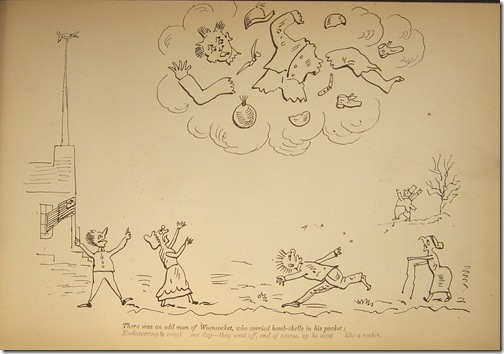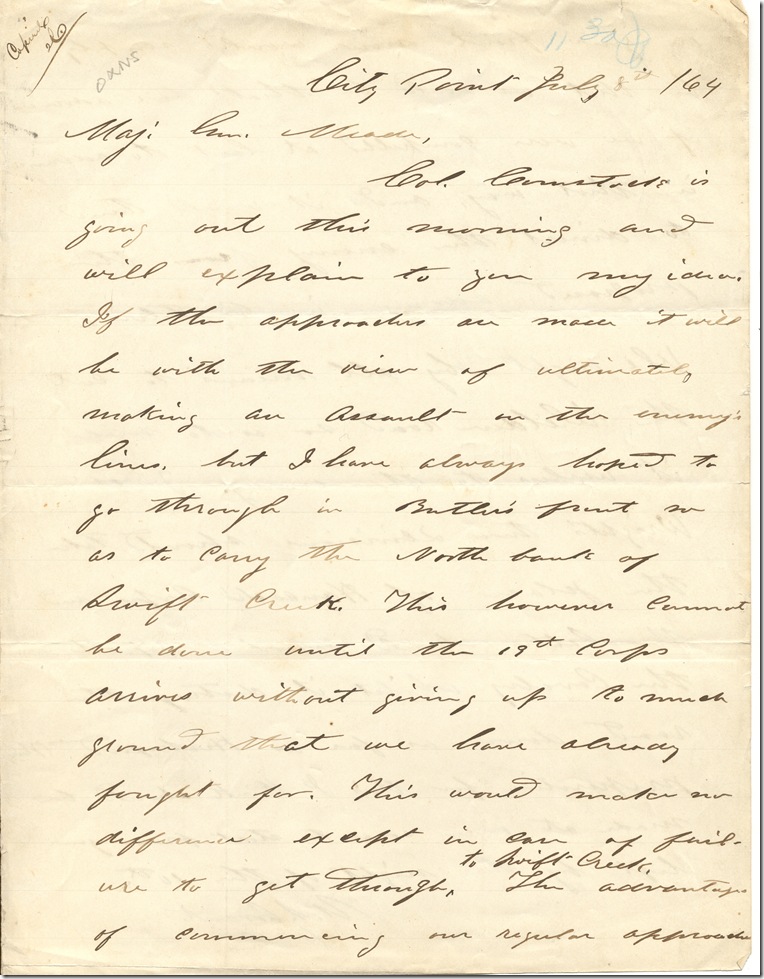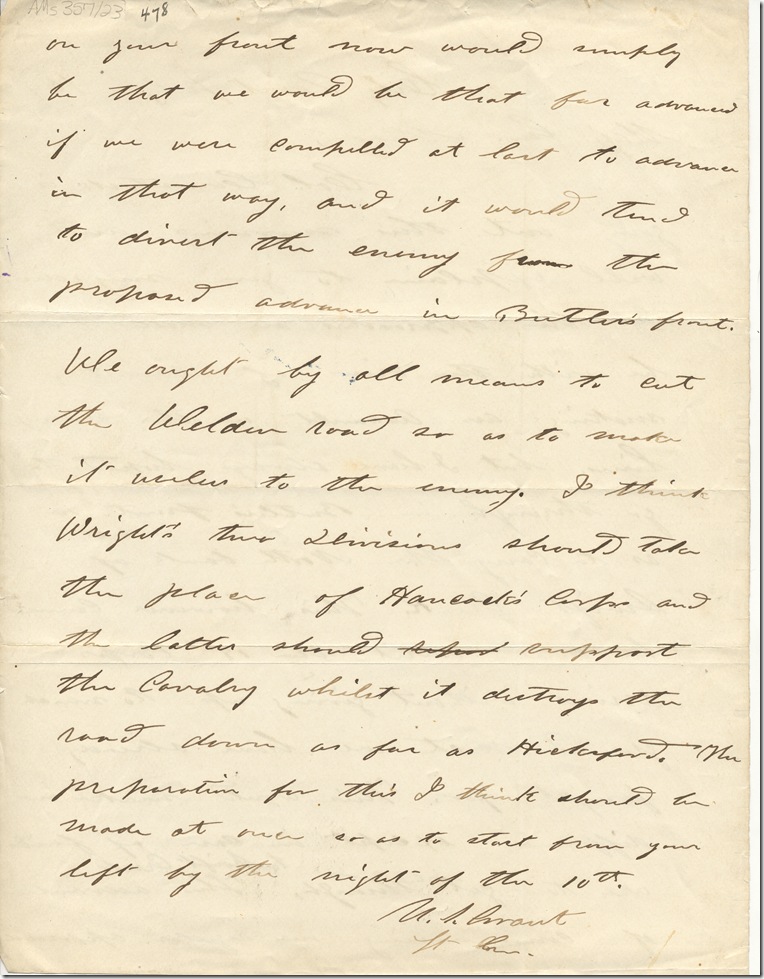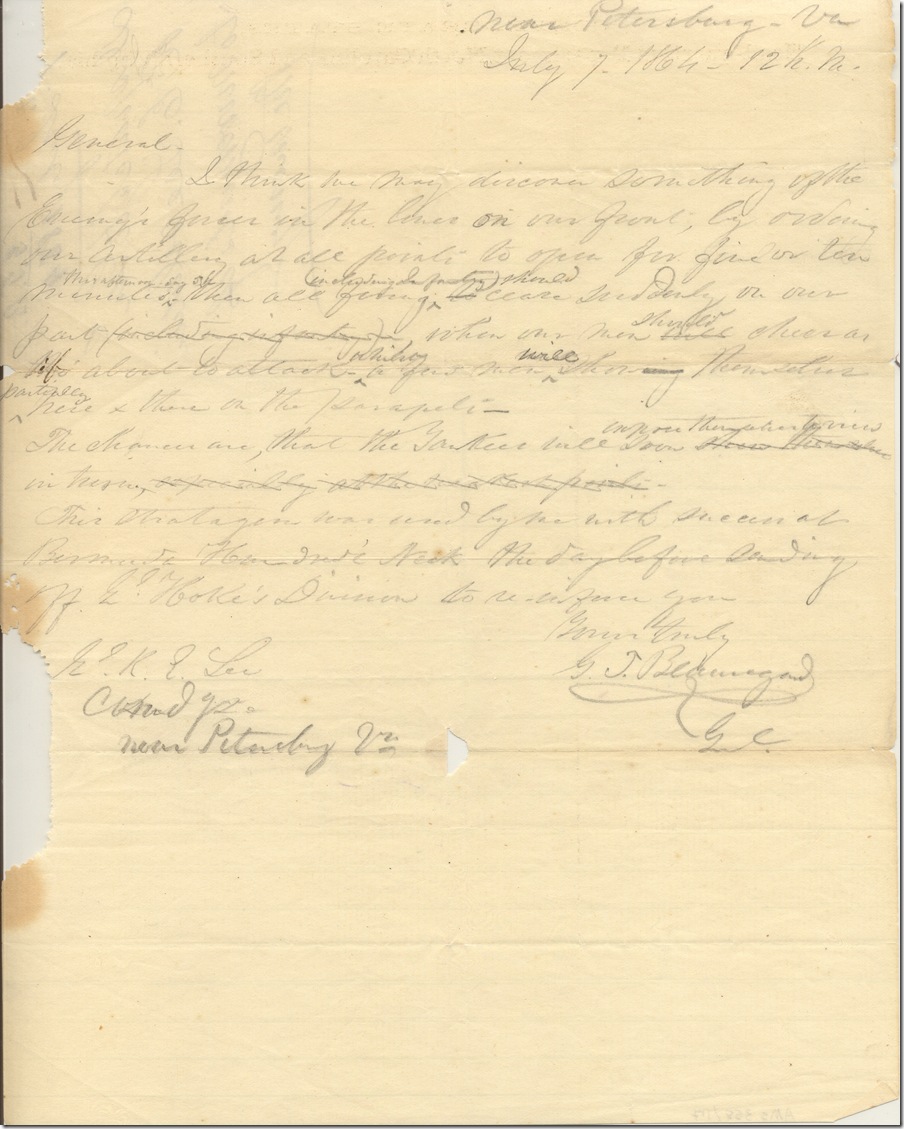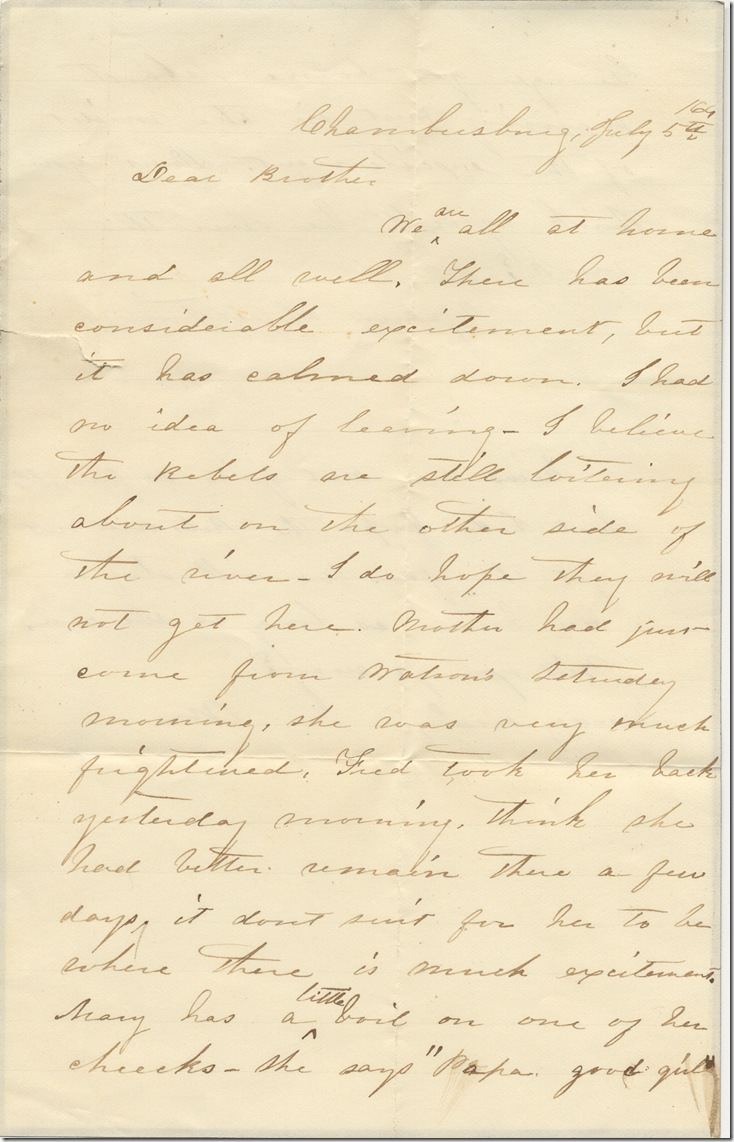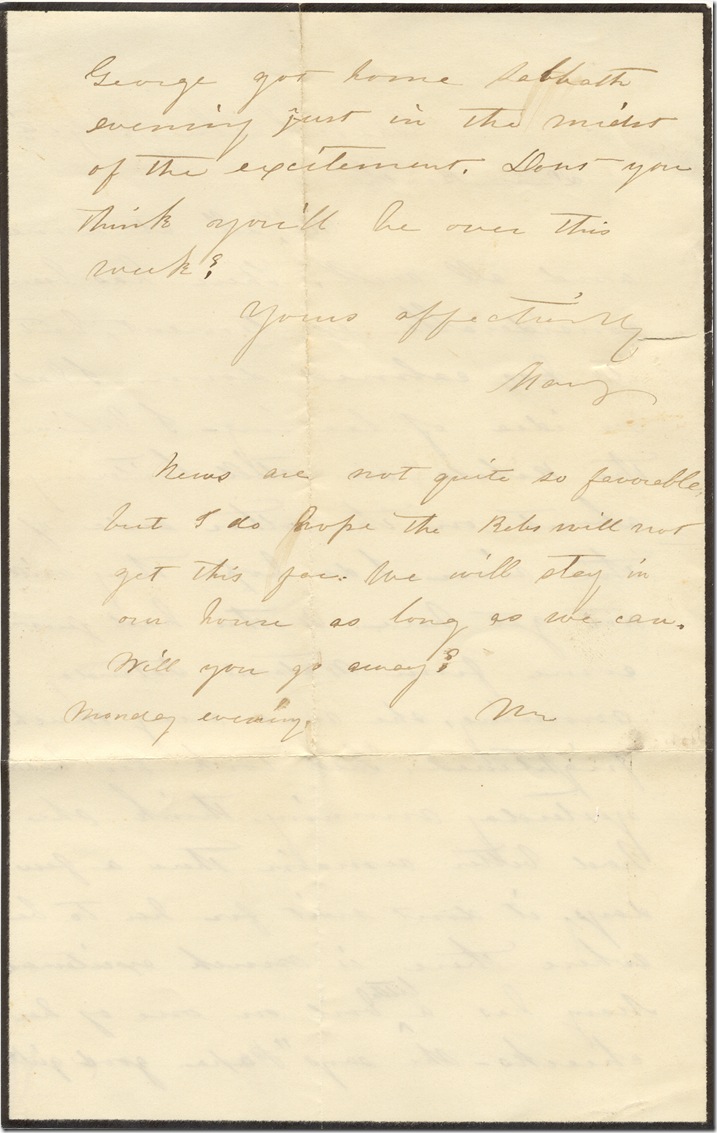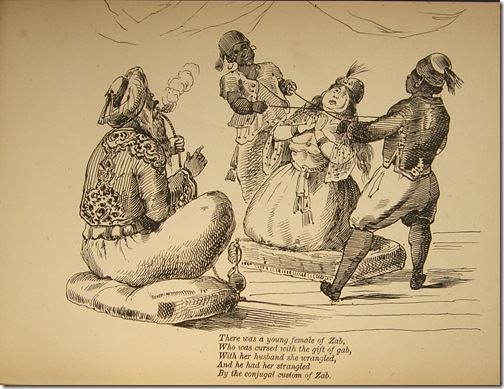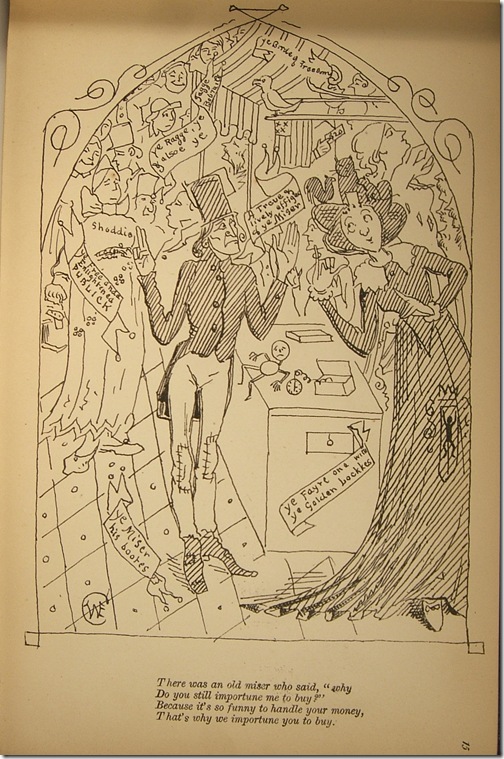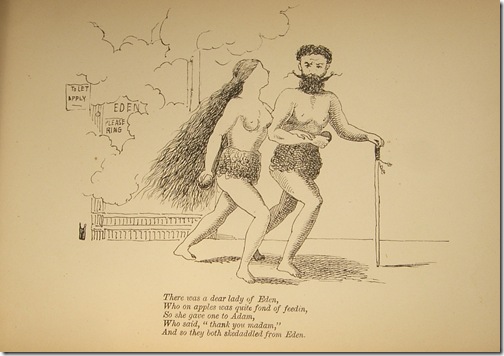Henry and Mary Warner lived in Allegheny City, Pennsylvania, now part of Pittsburgh. They are the great-grandparents of poet Marianne Moore. By the 1860s they had three surviving children: John, Henry, and Anne. Their letters to John, a Presbyterian minister living in Gettysburg, are preserved as part of Marianne Moore’s family papers.
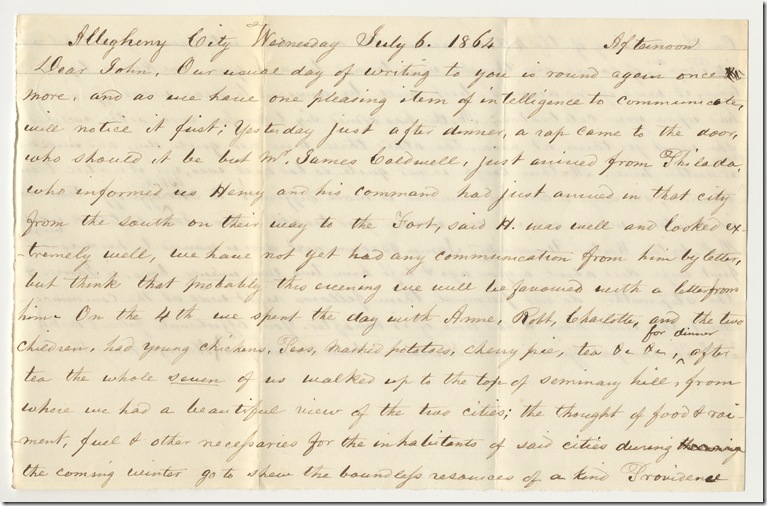
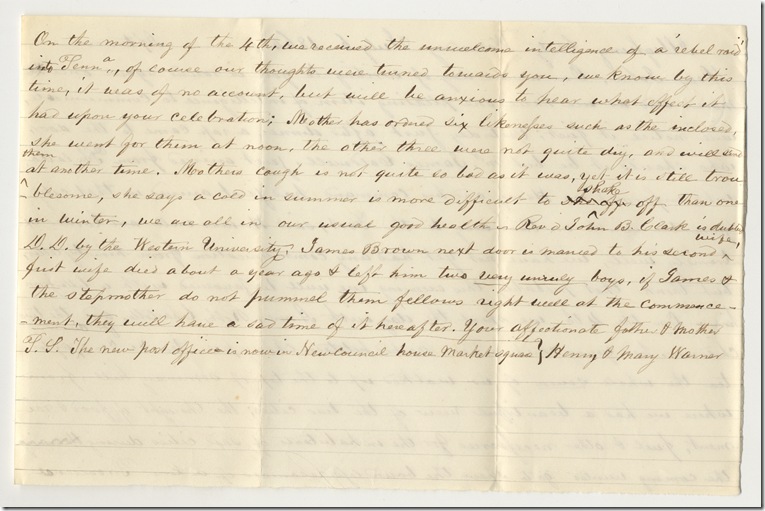
Transcript:
Allegheny City Wednesday July 6. 1864 Afternoon
Dear John, Our usual day of writing to you is round again once more, and as we have one pleasing item of intelligence to communicate, will notice it first; Yesterday just after dinner, a rap came to the door, who should it be but Mr. James Caldwell, just arrived from Philada, who informed us Henry and his command had just arrived in that city from the south on their way to the Fort, said H. was well and looked extremely well, we have not yet had any communication from him by letter, but think that probably this evening we will be favoured with a letter from him. On the 4th we spent the day with Anne, Robb, Charlotte, and the two children, had young chickens, Peas, mashed potatoes, cherry pie, tea etc. etc., after tea the whole seven of us walked up to the top of seminary hill, from where we had a beautiful view of the two cities; the thought of food & raiment, fuel & other necessaries for the inhabitants of said cities during the coming winter go to shew the boundless resources of a kind Providence. On the morning of the 4th, we received the unwelcome intelligence of a ‘rebel raid’ into Penn’a, of course our thoughts were turned towards you, we know by this time, it was of no account, but will be anxious to hear what effect it had upon your celebration; Mother has ordered six likenesses such as the inclosed. She went for them at noon, the other three were not quite dry, and will send them at another time. Mother’s cough is not quite so bad as it was, yet it is still troublesome, she says a cold in summer is more difficult to shake off than one in winter. We are all in our usual good health. Rev’d John B. Clark is dubbed D.D. by the Western University. James Brown next door is married to his second wife, first wife died about a year ago & left him two very unruly boys, if James & the stepmother do not pummel them fellows right well at the commencement, they will have a bad time of it hereafter. Your affectionate father & mother, Henry & Mary Warner
P.S. The new post office is now in New Council house Market square
Citation: Henry and Mary Warner, autograph letter signed to John Riddle Warner. Allegheny City [Pittsburgh],6 July 1864. Moore VI:06:7

